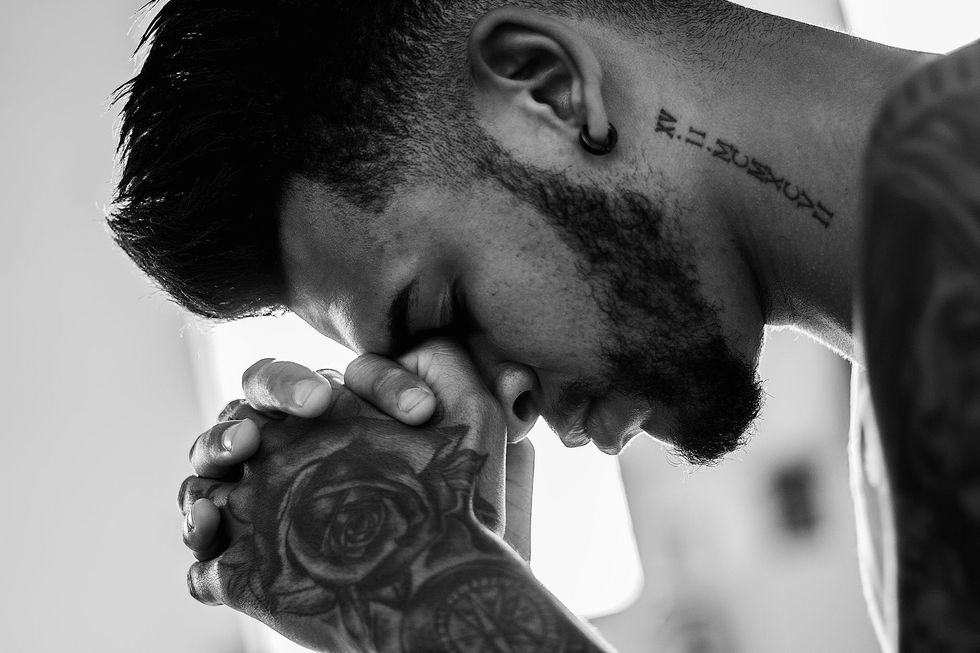One thing I have noticed since working on improving my devotion life and my relationship with God is that I may have more hope than I have faith. They are related, but I can and often do distinguish between them. The former functions as a placeholder for the latter that keeps me encouraged and invested in my beliefs, but I seek to build my faith until they are both prominent rather than one greatly amounting to more.
Faith is defined by Merriam-Webster as the confidence and trust in a person or thing and/or belief that is not based on proof while hope is defined as the feeling that what is wanted can be had or that events will turn out for the best. I think the nuances of the two are greatly significant and play an important role in my life and my beliefs.
Faith in God is believing in Him without physical proof of His existence besides the remnants of His influence and actions. It is trusting in His plan and knowing it will be the best because He is God, and He only seeks the best for you in the end. It is confidence in His will and what is to come, and it is looking forward to His promises as certainties with full expectation.
Hope in God is generally believing in Him (with room for faint doubt and many questions) without physical proof and really yearning that He is indeed real. It is knowing His plan is best, but when circumstances are looking bad, it is mustering that meager strength to hold on and stay dedicated while trying not to panic. It is knowing He has a will and doing one's best to abide by it, but sometimes, you can get blinded by what is going on and the "maybe I am not doing this right" moments that you question whether He is even aware of what is going on and planning on helping out.
At the same time, I wholeheartedly believe in God, there is occasionally a small voice in my head that says, "But, like, really… is He real?", "Is He really listening?", or "Can He really do that?" It screams of cognitive dissonance all over.
I mean… I believe God can do a lot for people who ask of it, and I have seen the results of His actions in many around me and my own life. Yet I still waver when it comes to my own personal relationship with Him and the expectations on both sides.
Sometimes I feel unworthy because of it, so it makes me hesitate in making requests. Sometimes, I feel like I am just talking to the air because I am just reciting things rather than saying them. Sometimes, I have to fight the notion that God cannot do something in my life that He has done for many people. I have to just believe. which is one of the hardest things you can ask me to do, but I do it because I believe it is worth it.
I am a very analytical and logical person, so I have a very questioning mind. Some would say that clearly because I have these doubts, it means that my rational, modern mind is trying to shake off these years of indoctrination and fantasy to enlighten me to the reality of the universe: there is no God. They would say, "Go with it. Free yourself. Why would you believe in an invisible wish-granting man in the sky? Do you not see the state of the world? If a God existed, why would He let this happen?"
What you need to know is that doubt and questions are my default setting, not a result of logically unsupportable faith. I question everything: biology, religion, mathematics, sociology, psychology, etc. It is a part of who I am. I do not take most things at face value. I have to learn a lot and do intensive research before I accept anything, and even then, I hold onto some reservations.
So, when it comes to my beliefs, I do have doubts and questions, but I have that for everything. What matters is that I am trying to learn more about my beliefs to assuage some of the doubt or, at least, understand it better. It is not worth it to just give it up on something as ephemeral as doubt because it does not equate unbelief.
Yes, I have more hope than faith because it is not my nature to accept things blindly, but I think that is a good thing because it forces me to become more educated and resourceful. I must learn for myself what people try to tell me, and asking questions can often lead to great insights.
It does make it harder to be devoted to my faith, but it is not impossible. If rationality is my cross, I will bear it because I will come out stronger in the end, armed with truth and feeling content that I have learned all I could while still seeking more just in case there is.




 StableDiffusion
StableDiffusion StableDiffusion
StableDiffusion StableDiffusion
StableDiffusion Photo by
Photo by  Photo by
Photo by  Photo by
Photo by 
 Photo by
Photo by  Photo by
Photo by  Photo by
Photo by  Photo by
Photo by  Photo by
Photo by 











